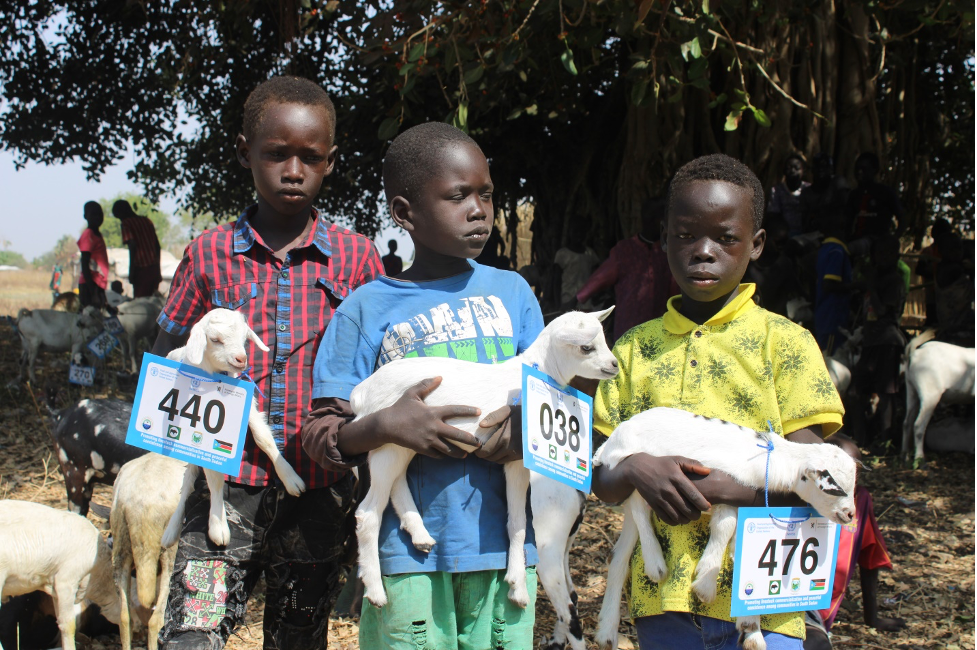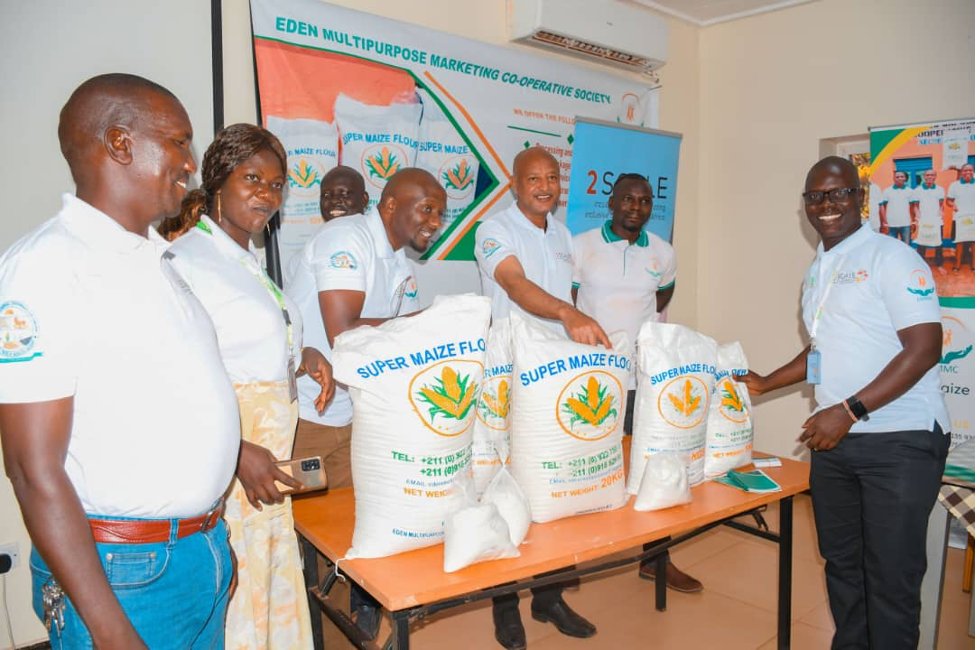
SOUTH SUDAN LAUNCHES PARLIAMENTARY ALLIANCE FOR FOOD SECURITY AND NUTRITION
Joint UNICEF, WFP, FAO and TNLA Press Release
Juba – The United Nations and the South Sudan Transitional National Legislative Assembly (TNLA) today launched the South Sudan Parliamentary Alliance for Food Security and Nutrition. As a member of the Eastern African Parliament Alliance for Food Security and Nutrition, the aim of the South Sudan Parliamentary Alliance is to advance strategies on the right to adequate food and to promote investments in food and nutrition security in South Sudan.
The Alliance was launched in Juba by the United Nations Children’s Fund (UNICEF), World Food Programme (WFP), Food and Agriculture Organization of the United Nations (FAO), and the TNLA with recognition that parliamentarians play a critical role in ensuring legislation, resource allocation and oversight, all of which are essential for raising food security and nutrition as a national priority.
The launch of the South Sudan Parliamentary Alliance for Food Security and Nutrition is happening as the latest Integrated Food Security Phase Classification (IPC) shows there are 7.76 million people facing crisis or worse levels of food insecurity and 1.4 million malnourished children.
UNICEF applauds the legislators’ commitment to advancing good nutrition in South Sudan. “The parliamentarians are crucial partners in the fight to reduce poverty and malnutrition, given their legislative, budget allocation and policy oversight roles,” said UNICEF Acting Representative in South Sudan, Jesper Moller.
“Ensuring better food and nutrition policies and frameworks in legislation with sufficient budget to achieve improved nutrition outcomes would have very substantial socio-economic returns,” he added.
Through this initiative, parliamentarians will be empowered on the importance of food security and nutrition. The alliance will also advocate for a shift to include the advancement of food and nutrition security within legal frameworks, including the right to food.
“With about two-thirds of the country still facing acute levels of food insecurity, there is much work to be done, and everyone needs to be on board. The launch of the South Sudan Parliamentary Alliance for Food Security and Nutrition signals full engagement of the legislative arm of government. Their support will be significant in highlighting and advocating for much needed investment in agriculture, food security and nutrition,” said Meshack Malo, FAO Representative in South Sudan.
South Sudan continues to grapple with persistent food and nutrition insecurity stemming largely from a combination of multiyear climate shocks, conflict, and socio-economic insecurity.
“We have seen food insecurity rise to alarming levels where two thirds of the population in South Sudan are facing acute levels of hunger as the climate crisis exacerbates high levels of food insecurity caused by the continuing conflict and the global food crisis,” said Adeyinka Badejo, acting Country Director for WFP in South Sudan.
“Climate adaptation and building resilience is becoming increasingly critical to overcome recurring shocks vulnerable communities continue to face. The launch of this alliance is timely as it is vital that access to food security and adequate nutrition is enshrined in legislation so that all families are able to provide their children the best start in life,” she added.
In South Sudan, 28.5 per cent of women of reproductive age are suffering from acute malnutrition and 40 per cent of reproductive age women in the country are anaemic, jeopardising pregnancy outcome, with significant negative impact on survival and nutrition status of the newborn.
“The leadership of the TNLA and the Unity Government of South Sudan welcome the collaborative efforts by the United Nations family in South Sudan to empower parliamentarians to address policy gaps and legislation focusing on the advancement of food security and nutrition, scaling up budgetary allocation and investments. Food security and good nutrition are part of South Sudan’s top priorities. Adequate food will spur economic growth, employment, industrial base and usher in a vibrant country,” said Right Honorable Speaker of the Transitional National Legislative Assembly of South Sudan, Madam Jemma Nunu Kumba.
UNICEF promotes the rights and wellbeing of every child, in everything we do. Together with our partners, we work in 190 countries and territories to translate that commitment into practical action, focusing special effort on reaching the most vulnerable and excluded children, to the benefit of all children, everywhere.
The United Nations World Food Programme is the world’s largest humanitarian organization, saving lives in emergencies and using food assistance to build a pathway to peace, stability and prosperity for people recovering from conflict, disasters and the impact of climate change.




































